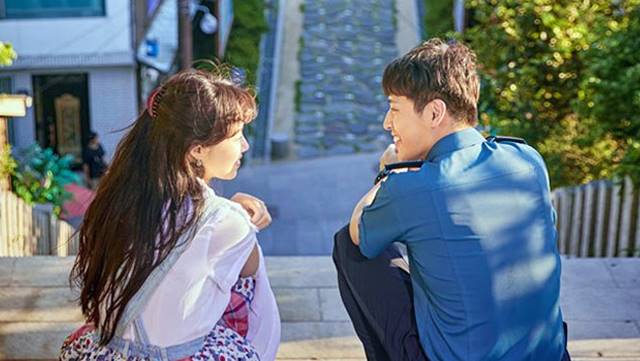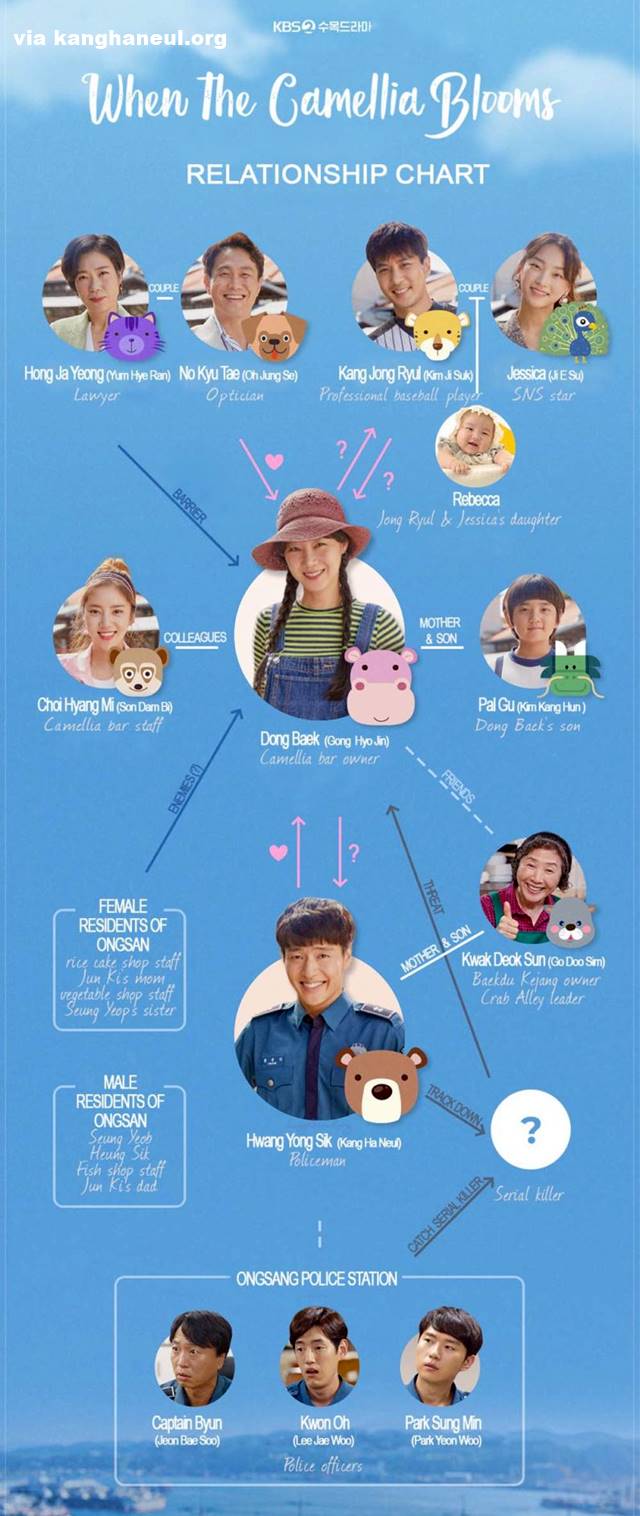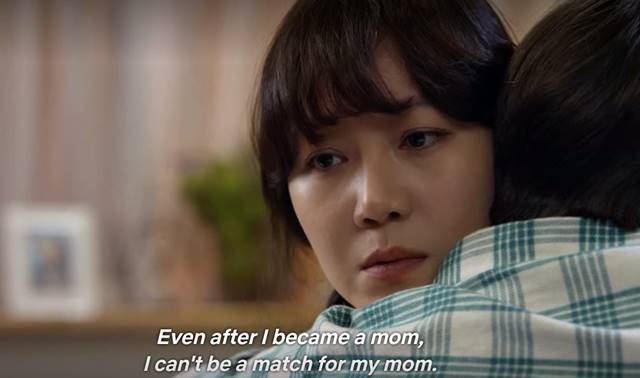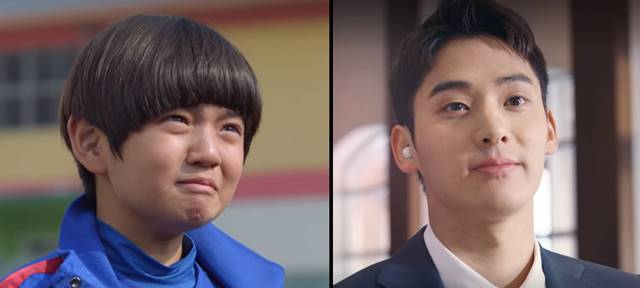
By Jae-Ha Kim
Substack
November 22, 2019
![]()
Dong Baek (played by Gong Hyo-Jin)
Hwang Yong-Sik (played by Kang Ha-Neul)
↑Note: Korean names denote the surname followed by the given name.
“When the Camellia Blooms” starts off with so many things happening at once that it’s initially difficult to focus on all the different story arcs: a serial killer, smalltown pettiness, marital issues and the possibility of romance. But as the series progressed, each consecutive episode found its focus and finished with a sweet and satisfying finale that felt true to the characters.
There is death and sadness dotted throughout the series. But at its core, “Camellia” is a story of love — not just between a man and a woman, but between parents and their children.
(This character chart (via kanghaneul.org) is pretty helpful in keeping track of who’s who.)

The series starts off by introducing us to the quirky residents of (the fictional town) Ongsan. They are a closely knit community where the women are the de facto leaders. Yes, the politicians and police officers are all men. But it’s the women who own and run the storefront shops and keep the money flowing through the town. And Ongsan’s most powerful and respected citizen is a female attorney (Ja Yeong), whose biggest liability is her immature optometrist husband (Gyu-Tae).
These women also wield the ability to welcome or ostracize newcomers.
Enter Dong Baek, a single mom with a precocious seven-year-old son, Pil-gu (Kim Kang-hoon). All the men are as entranced with her as the women are suspicious. Because she has never been married, rumors circulate that she may have been a prostitute or a bar girl. It doesn’t help her cause that rather than operating a cafe or a diner, her business is a bar called Camellia. Why didn’t she choose something more respectable for her business? Because when you’re impoverished, you don’t have the luxury of making choices and have to accept what you can do with the limited resources that you have. Serving beer and small snacks is doable. Employing a staff of cooks and waiters to open a restaurant isn’t, not for Dong Baek anyhow.
But none of this bothers Yong-Sik, a police officer better known for his brawn than his brain. The relationship between the couple moves along at a snail’s pace and is blocked by everything and everyone. But Yong-Sik’s love and admiration for Dong Baek never falters and she allows herself to believe that she is worthy and deserving of love and a less complicated life.
But when people helpfully point out that no good family would welcome her as an in law, she agrees. She has grown so accustomed to being told she is nothing that she doesn’t have the confidence to tell people to go to hell.
Their romance is incredibly sweet, but the series offers so much more than a second lead syndrome (and there is one, though tepid as it is). More compelling is the depiction of child abandonment and how that impacts the children decades after the trauma of being left behind. Dong Baek’s mother left her at an orphanage when she was seven. Pil-gu never knew his father and pretended he didn’t care, so as not to hurt his mother. And Dong Baek’s employee and friend, Hyang-mi (Son Dam-bi), took on the role of her younger brother’s caregiver after their mother tossed them aside.
While the series doesn’t excuse the parents for their unthinkable actions, the reasoning behind their heartbreaking choices are revealed throughout the series, making it clear that sometimes parents make awful decisions that are the lesser of two evils.
Three decades after abandoning her, Dong Baek’s mother re-enters her life. And Dong Baek feels a range of emotions, from anger and hate to love and understanding. She tries to convince herself that her mother is an unnecessary burden, but she can’t help feeling comfort in having her mother back in her life. Her mother makes no excuses for why she did what she did, but also offers no explanation.

Just as things are going relatively well in her life, Dong Baek’s former boyfriend, comes boomeranging back to her. A superstar baseball player married to Jessica, a social media influencer, Jong-ryul obviously is Pil-Gu’s father. Once he learns that he has a son, he wants to be a part of Pil-Gu’s life. But it’s clear from the get-go that he is no match for Yong-Sik.
Throughout all this, little Pil-Gu tries to protect his mother, from the overly attentive fawning male customers at her bar to his own friends, who refer to her by her first name, rather than with honorifics (as is customary in Korean society). And because he knows they don’t have a lot of money, he never asks his mother for things he knows she can’t afford.
By the end of the series, the serial killer has been caught, questions have been answered and miracles came true when they were most needed.
Meta Moment: In Episode 3, Yong-Sik asks Dong Baek who her ideal man is. Trying to let him down gently, because she doesn’t believe she has the right to have a relationship, she picks Gong Yoo. In real life, Gong Yoo is Gong Hyo-Jin’s best friend.
Airdates:
KBS2 aired 40 episodes — each about 35 minutes long — from September 18 to November 21, 2019. The series finale scored an average nationwide rating in South Korea of 23.8 percent, making it the highest-rated series this year, according to Nielsen Korea.
Spoiler Alert:
When Dong Baek’s mother had earned enough money to take care of her, she returned to the orphanage to bring her daughter home. She was shocked to hear that Dong Baek had been adopted by a rich academic family that was moving to the United States. Heartbroken, she takes solace in the fact that Dong Baek would never want for anything in life again. 20something years later, she sees the family on TV and learns they have returned to Korea. She arranges to meet the adoptive parents and finds out that they had returned Dong Baek to the orphanage shortly after adopting her. Why? She had mentioned that she grew up in a bar (where Dong Baek’s mother worked doing laundry for the bargirls) and the adoptive parents didn’t like that. Dong Baek’s fear of abandonment runs deep because she had lost two mothers in the first seven years of her life.
Hyang-mi comes across as a manipulative kleptomaniac, but she was also one of my favorite characters. She wasn’t educated, but she was street smart and could smell BS from a mile away … except when it came from her baby brother. Her backstory is so sad. She earns (and steals) money to send to her younger brother in Copenhagen, but he’s ashamed of her and hasn’t told his wife’s family that he has a sibling. To make things easier on him, Hyang-Mi yells at him and tells him they’re no longer relatives and to never contact her again. She gave him the out to hate her, even though her heart was broken. She had funded his education and given him the life she didn’t even dream about for herself. Her hope had been to join him and his wife in Denmark. When he tells her not to come, that she wouldn’t fit in, she understands that he is embarrassed of who she is. He considers her a liability to his social status … but he’s happy to continue accepting money from her. He’s a piece of crap. But in her mind, he is still the little toddler who was walking around in the cold with no socks and flip flops he had outgrown years ago. He’s her responsibility.
I wish the series had inserted a short flashback showing what it was about Jessica that made Jong-ryul fall in love with her. Throughout the series, all she talks about is how she isn’t nothing if she’s not envied by people for being married to a famous baseball player. The finale showed hope for their relationship, but it would’ve been nice to see what their courtship was like in the early stages and how it disintegrated so much over the years.
The series does a good job of revealing why Dong Baek chose not to tell Jong-ryul about her pregnancy and why Dong Baek’s mother left her at an orphanage. In a flashback sequence, Dong Baek’s mother is shown after she has left her daughter at the orphanage. She says that she did whatever it took to earn money so that she could return to get Dong Baek back. They show her working in a bar, where she is supposed to entertain a drunk man. She is shown crying at what she has to do.
Hyang-mi’s mother is kind of written off as an irresponsible parent, which she very well may have been. But I don’t get the feeling that she was as troubled about working as a bargirl as Dong Baek’s mother. But then again, who’s to say how she felt?

The last scene of the series was about the most satisfying I’ve seen in ages. Pil-Gu is now a young man in his 20s (played by Jung Ga-ram of “Love Alarm“). He’s on the phone with his mother, who asks if he has eaten and says she misses him. He tells her that he is fine and that when she misses him, she can turn on the TV to see his face. He tells her he loves her, smiles, and walks into a press conference set up for him. He has just been signed as a Major League baseball player for the Los Angeles Modgers. (haha!) Dong Baek and Yong-Sik (dressed in his police uniform) are shown from behind, watching the press conference on their television set.
© 2019 JAE-HA KIM | All Rights Reserved
One thought on ““When the Camellia Blooms” (동백꽃 필 무렵)”